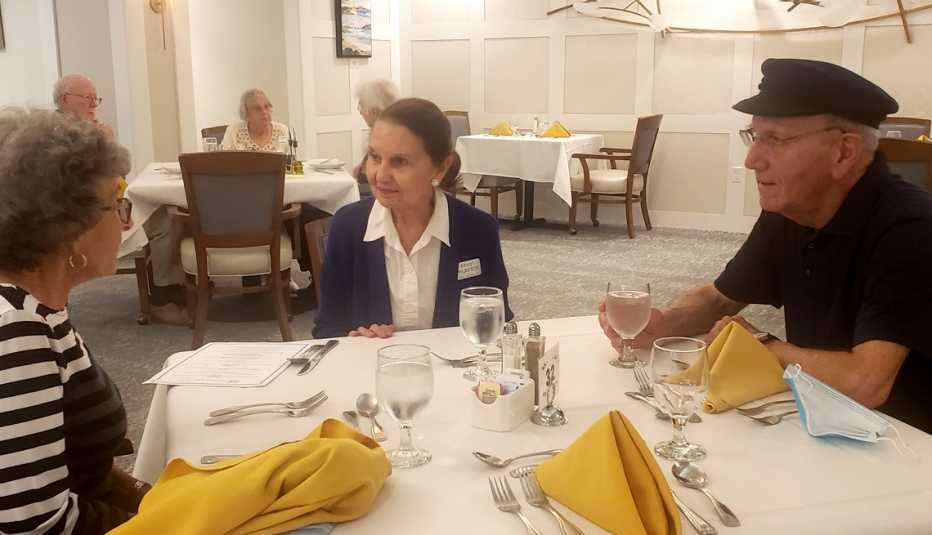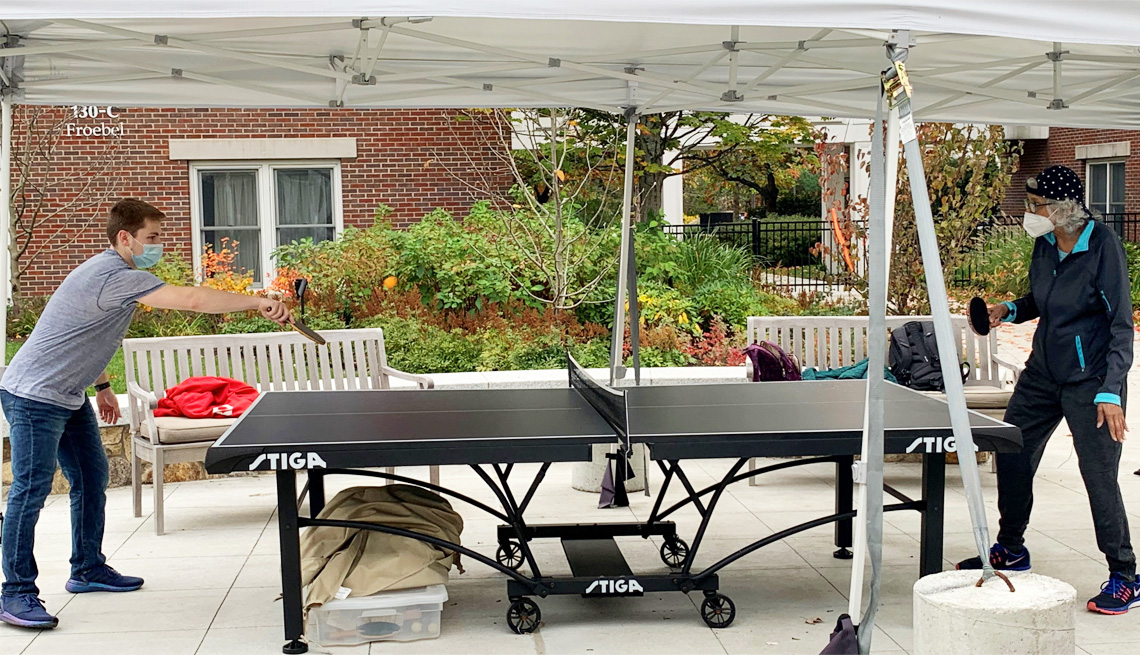Staying Fit
Like most residents on college campuses, Nelly Murstein is busy all day, almost every day.
She’s in class, attending cultural events on and off campus, in and out of the library for research and browsing, and exercising to keep her body fit and her mind sharp.


AARP Membership— $12 for your first year when you sign up for Automatic Renewal
Get instant access to members-only products and hundreds of discounts, a free second membership, and a subscription to AARP the Magazine.
What makes Murstein and about 250 other residents at Lasell University near Boston stand out is their age — they’re between 50 and 80 years older than the traditional college student.
They’re residents of Lasell Village, a senior living community on the campus of 1,500 undergraduates and 500 graduate students. The village residents enjoy the benefits of the vibrant college environment while having access to the health care and other services that aging people need.


“There are so many wonderful things to do, I can’t do them all,” says the 89-year-old Murstein.
Lasell University is one of more than 100 higher education institutions that have a partnership with a senior living community. Typically, the seniors live adjacent to or near campus so that they have easy access to audit classes, attend cultural and sporting events, and be part of the college scene.
Two features of Lasell Village distinguish it from other similar arrangements: It is located on the university campus, and its residents are required to take 450 hours of classes a year. Like other age-friendly higher education institutions, Lasell University designs specific classes to be intergenerational.
“We get to know a different generation, how they think and what they feel,” says Murstein, who took an intergenerational philosophy class recently. “And they look at us and see a different kind of old people.”
In other words, they see older people who are active physically, intellectually and socially.

































































